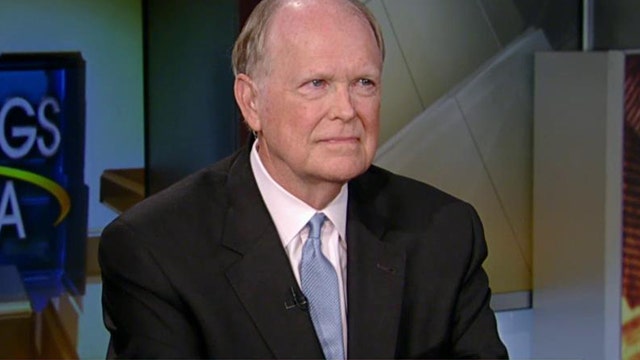Fed’s Plosser: Inaction Will ‘Keep Feeding the Frenzy of Uncertainty’
As the Fed decision looms, former Philadelphia Fed President Charles Plosser is reiterating that the economy is “ok” and the Fed should have raised rates a year ago.
During an interview with FOX Business Network’s Maria Bartiromo he said: “I sort of made that argument for quite some time and felt like it was time to move. We still had crisis-style monetary policy in the midst of an economy that was going between or around 2.5% and [the] unemployment rate was getting close to the natural rate or what might be full employment. And it seemed to me it’s rather strange to be having a record amount of accommodation in an economy that was pretty close to the Fed’s goals and targets.”
He also discussed how an economic slowdown in China would impact the Fed’s decision.
“It’s somewhat important but, remember, the U.S. economy is still largely a closed economy. We don't export hardly anything to China, almost nothing. So the fact that China is slowing down, my goodness, they’re slowing down from 7.5% to maybe 6%, we should be so lucky,” he said.
Plosser explained how the Fed plays a role the U.S. jobs market.
“I think if you look at, collectively, all the data about the labor market, it’s not perfect. It never is perfect… I think we have to be a little more restrained about what we think monetary policy can in fact accomplish. And so far, again, this economy is doing ok. It's not gangbusters of course, but it's been doing ok for quite some time,” he said.
He also weighed in on market volatility.
“I think one of the sources of volatility is the uncertainty that monetary policy is providing and the guessing. And if you don't act today, the Fed doesn’t act today, one of the risks they run is that volatility is going to continue. There’s going to be now guessing will they do it in it October? Will they do it in December? You just keep feeding the frenzy of the uncertainty, and resolving that uncertainty, at least getting the first rate hike out of the way. Because what’s really going to be important is what happens after that.”




















